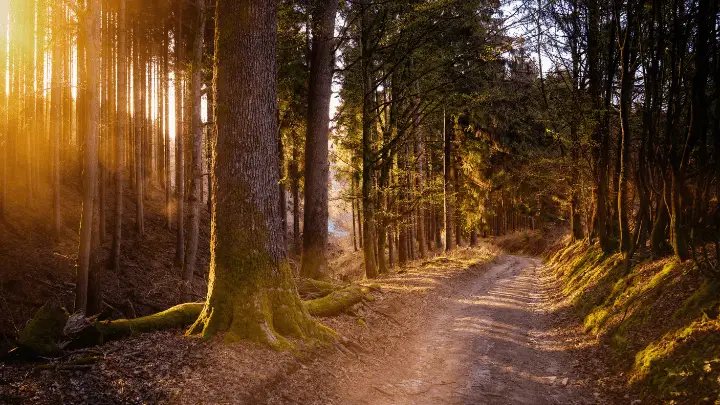Ah, snow – the fluffy white stuff that brings out the kid in all of us. But believe it or not, some US states don’t experience snow. From Texas to Florida, these states have some of the warmest temperatures in the country, allowing them to remain free of snowfall year-round.
But surprisingly, there’s more to these places. Although there are no snowfalls in these parts of America, there is still a wealth of palm trees, lush jungles, and vibrant cityscapes to discover.
Are you ready to explore states without snow and their benefits and drawbacks? Let’s get started.
States With Little or No Snow in the US
Most people perceive snow-covered landscapes and chilly temperatures when they imagine winter in the United States. Snow, however, is an uncommon occurrence in many US states. Regions with little to no snow are listed below:
1. Florida
Florida rarely experiences snow and is known for its warm, sunny environment. Since the state’s wintertime average temperature hovers around 60 degrees, snowbirds seeking refuge from the weather frequently travel there.
2. Texas
Due to its mild environment, Texas hardly ever experiences snowfall. Snowfalls do, on occasion, occur in the state’s northern regions.
3. Arizona
The state rarely experiences snow and is well-known for its arid terrain and warm climate. The state is a common vacation destination for outdoor enthusiasts due to its typical winter temperature of around 50 degrees.
4. Louisiana
Despite having a humid environment, winter’s lows are usually above freezing. The state is a wonderful place to visit if you want to escape the cold because the average winter temperature is around 60 degrees.
5. Georgia
Due to the mild climate in its southern regions, Georgia hardly ever experiences snowfall. Snowfalls do, on occasion, occur in the state’s northern regions.
6. Mississippi
Mississippi hardly ever experiences snow and is well-known for its warm climate and southern courtesy. An excellent winter destination for those seeking milder weather, the state’s average winter temperature is in the mid-50s.
7. Alabama
Due to its mild environment, Alabama hardly ever experiences snowfall. Snowfalls do, on occasion, occur in the state’s northern regions.
8. Hawaii
Due to its warm weather, Hawaii hardly ever experiences snow. The state is a fantastic choice for travelers seeking warm weather all year round because the average winter temperature is mid-70 degrees.
9. California
Known for its stunning coastlines and warm climate, most parts of California experience little to no snowfall. Snowfalls do, on occasion, occur in the state’s hilly areas.
10. South Carolina
The state’s southern regions have a mild climate, so there isn’t much snow there. Snowfalls do, on occasion, occur in the state’s northern regions.
Despite not having the classic winter wonderland atmosphere, these states are excellent places to escape the cold because of their mild climates and absence of snow.
Benefits of Living in States Where It Doesn’t Snow

1. Less time and money spent on snow removal
The snow may be pretty, but that’s not why most people would want to move to a place where it never falls. Snow removal can be expensive and time-consuming, so living in a snow-free environment can be appealing.
People in these areas can spend time and money on more enjoyable activities instead of scraping up ice or working extra to pay for the service.
With no need to worry about shoveling driveways or hiring a plow truck, life can be simpler and less stressful – and who doesn’t want that?
2. Reduced risk of accidents and injuries related to snow and ice
In snow-free states, residents have a reduced risk of accidents and injuries related to slippery conditions. No more worrying about what type of boots will keep you from slipping on ice or how to get up the driveway without a snowplow.
With warm winters comes the peace of mind from knowing you’re unlikely to slip and fall in your driveway. Whether looking for improved safety or just the beauty of nature without the winter chill, living in snow-free states has undeniable appeal.
3. Availability of outdoor activities year-round
One of the greatest gifts of living in states without snow is the abundance of outdoor activities available year-round. The opportunities for exploration and adventure are endless, from biking on a breezy day to kayaking on a lake or hiking on a warm winter night.
You never have to worry about the temperature being too cold to get out and enjoy life, and you can enjoy a wealth of outdoor activities regardless of the season. You get to take in the beauty of the outdoors every season, and physical activity will help lead to a healthier lifestyle.
The world of possibilities year-round will make you feel like the luckiest person alive.
4. Lower heating costs
While winter can be cold, dark, and unforgiving in some countries, several states offer an alternative. Many states that don’t experience snowfall year-round provide residents with lower heating costs as a bonus.
Imagine a season where you don’t have to worry about blizzards damaging your property or skyrocketing energy bills due to keeping your home warm during the coldest days.
That’s the freedom living in these places provides—allowing more time for activities that make winter months enjoyable.
5. Less wear and tear on vehicles
If you’re tired of dealing with the white wintery snow, there’s good news: not only are some states blessedly free of it, but living in one can also be better for your car. Inclement weather, like sleet and snow, can increase wear and tear on vehicles by a huge margin.
Salt used to melt snow can corrode air intakes and cooling systems, while icy roads can wear away at suspension and tires. Choosing a state without snow can reduce repairs and replacements and keep your car running smoothly.
Drawbacks of Living in States Where It Doesn’t Snow
Here are five drawbacks of living in a state with little or no snow:
1. A lack of winter sports and activities such as skiing, sledding, and snowball fights.
2. Limited opportunities for seasonal employment in the winter months.
3. Potential for extreme heat or other weather events that could negatively affect your day-to-day life.
4. Fewer opportunities for winter photography, discovering pristine landscapes blanketed in white.
5. Loss of unique seasonal experiences like driving on icy roads and walking on crunchy snow-covered sidewalks.
While living in a snowy state may bring certain benefits, living in a state with limited or no snow also has drawbacks. So weigh both sides before deciding which is best for you.
FAQs
Do states with little or no snow still experience cold temperatures in the winter?
Yes. Wintertime temperatures can be chilly even in states with little or no snowfall. However, the lack of snow may make the frigid temperatures more tolerable and less unsafe.
Is it still necessary to prepare for winter weather, even without snow?
Yes, even without snow, it is still imperative to be ready for winter conditions. This can include being mindful of the possibility of ice and freezing temperatures, ensuring your house is well-insulated, and having an emergency kit.
Before moving to a state with little or no snow, what should you consider?
Before moving to a state with little or no snow, you should consider factors such as the cost of living, job opportunities, quality of schools, and access to healthcare. Researching the area’s climate and culture would be best to ensure it fits your lifestyle well.
Conclusion
It may surprise some that there are places within the United States of America where it never snows. While states like Alaska, Michigan, and Colorado often experience heavy snowfall each winter, other states in the US barely get any precipitation, let alone snow.
While it may be difficult to imagine a year without snow in some of these states, the fact remains that they all have something unique to offer visitors and residents alike. Whether you’re an avid skier or enjoy sunbathing on the beach, there’s something for everyone in the United States.
You can also learn more about US states bordering the ocean.
Thanks for reading.

